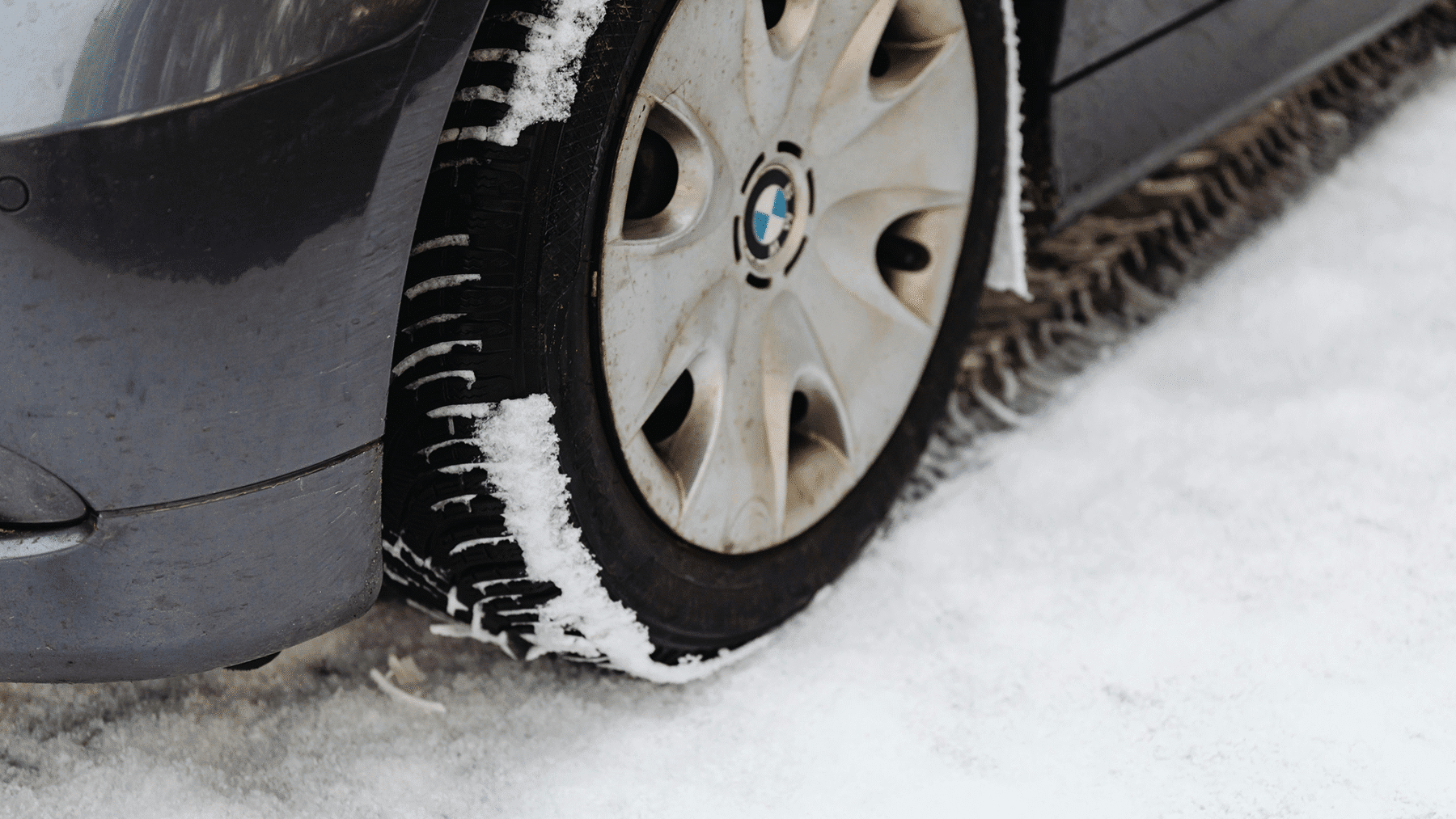BMW Check Engine Light Diagnostics in Winter: Top 5 Cold-Weather Causes


When the temperature drops, your BMW has to deal with some extra challenges that can trigger that annoying check engine light. Winter driving isn’t just about slippery roads—it also puts more strain on your battery, tires, fuel system, and sensors.
Knowing the most common winter problems can help you catch issues early, save money on repairs, and keep your BMW running smoothly.
In this guide, we’ll cover the top five winter-specific reasons behind a BMW check engine light, plus simple prevention tips to keep your vehicle running smoothly all season long.
1.Why Frozen Fuel Lines Trigger a BMW Check Engine Light in Winter
When the temperature falls below freezing, moisture in your fuel system can freeze and turn into ice. This blocks fuel flow and stops your BMW’s engine from getting the proper air and fuel mix.
As a result, the check engine light may turn on, and you may notice rough idling, hesitation, or even stalling.
How to Prevent Frozen Fuel Lines in Winter
- Keep your gas tank at least half full to minimize condensation.
- Use a fuel system antifreeze or dryer during sub-zero weeks.
- Store your BMW indoors whenever possible to limit exposure to extreme cold.
2.Why BMW Batteries Struggle in the Cold
Cold weather reduces a battery’s ability to hold a charge. Even healthy BMW batteries can lose up to 50% of their cranking power at 0°F. If your battery is already weak, winter temperatures may be enough to trigger a check engine warning.
Slow Engine Crank When Starting Your Car
On cold mornings, your BMW may take longer than usual to turn over. This hesitation means the battery isn’t supplying enough power to the starter. If it keeps happening, it’s a red flag that your battery is nearing the end of its life.
Dim Headlights or Dashboard Lights
Your battery powers all of your vehicle’s electrical systems. When it’s weak, you may notice headlights that look duller or dashboard lights that flicker. These small changes can quickly progress into more serious electrical issues.
Lingering Check Engine or Battery Warning Light
Modern BMWs are designed to alert you early when the battery isn’t performing at its best. If the check engine light or battery light stays on after you start the car, it’s your vehicle’s way of telling you the battery may not last much longer in cold weather.
Needing to Jump-Start Your Car More Than Once
A healthy battery shouldn’t leave you stranded often. If you’ve had to jump-start your BMW multiple times in a short period, the battery likely can’t hold a full charge anymore.
Electrical Accessories Acting Up
A weak battery can cause issues with power windows, seat heaters, or even the infotainment system. If these features start behaving inconsistently, your battery may be struggling to deliver steady power.
3.BMW Tire Sensors Trigger Warnings
When temperatures drop, air inside your tires contracts, lowering tire pressure. For every 10-degree decrease in temperature, your tires can lose 1–2 PSI. Low pressure doesn’t just trigger the Tire Pressure Monitoring System (TPMS); it can also affect your BMW’s fuel efficiency, braking, and handling — and may lead to a check engine light tied to traction control.
Simple Tips to Maintain Proper Tire Pressure in Winter
- Check tire pressure weekly during winter months.
- Inflate tires to the manufacturer’s recommended PSI, found on your driver’s door jamb.
- Consider winter tires designed to perform better in cold conditions.
4.BMW Diagnostics: Oxygen Sensor Problems
Oxygen sensors measure the amount of oxygen in your exhaust to ensure the right fuel mixture. Cold weather can cause sensors to wear out faster or malfunction, which often triggers the check engine light. A faulty oxygen sensor can reduce fuel economy and increase emissions.
Signs of a Failing Oxygen Sensor
- Poor Gas Mileage: One of the most common symptoms of a bad oxygen sensor is reduced fuel efficiency. When the sensor fails, it can no longer accurately measure the oxygen-to-fuel ratio in your exhaust. This causes your BMW’s engine control unit (ECU) to send too much fuel into the engine, leading to wasted gas and more frequent trips to the pump.
- Rough Idling or Staling: A faulty oxygen sensor can also affect how smoothly your BMW runs at low speeds or while idling. You may notice the engine shaking, sputtering, or even stalling when stopped at a light. That’s because the incorrect air-fuel mixture prevents the engine from maintaining a stable idle.
- Persistent Check Engine Light, Even After Refueling or Topping off Fluids: While sometimes a loose gas cap or low fluid can trigger your check engine light, a failing oxygen sensor can cause the light to stay on consistently. If you clear the code and it quickly returns, that’s often a sign the sensor isn’t sending the right data to the ECU. Leaving it unresolved can lead to bigger issues, such as damage to your catalytic converter.
5. How Winter Oil Problems Trigger BMW Check Engine Lights
Cold weather can have a major impact on how well your BMW’s engine oil performs. As temperatures drop, oil thickens and becomes harder to circulate, which makes it difficult for your engine to stay properly lubricated. If you’re not using the correct oil grade recommended for your BMW, this thickened oil can cause friction, sluggish performance, and even trigger your check engine light.
Thinner, Winter-Rated Oil Flows Better in Low Temperatures
When it’s freezing outside, thicker oil takes longer to reach critical engine parts. This delay in lubrication means your engine is briefly running “dry,” which increases wear and tear. Winter-rated oils are formulated to stay thinner at cold temperatures, ensuring your BMW starts smoothly and the oil circulates quickly.
The Wrong Oil Can Cause Engine Wear and Sluggish Performance
Using oil that’s too thick for winter conditions makes your engine work harder than it should. You may notice sluggish acceleration, rough starts, or unusual engine noises. Over time, this extra strain leads to increased wear on pistons, bearings, and other key engine components—which can set off the check engine light.
BMW Recommends Synthetic Oil for Most Models in Cold Weather
Synthetic oil is engineered to resist thickening in freezing temperatures while still offering strong protection at high operating heat. BMW recommends synthetic blends or full synthetic oil for most of its modern models. Sticking to this recommendation gives you the best balance of cold-start protection, fuel efficiency, and long-term engine health.
Why Changing Oil Before Winter Matters
Many BMW owners wait until their dashboard warning lights appear before scheduling an oil change, but in cold climates that’s a costly mistake. Here are the reasons why:
Winter Puts Extra Stress on Your Engine
Many BMW owners wait until their dashboard warning lights appear before scheduling an oil change, but in cold climates that’s a costly mistake. Cold weather thickens oil and slows circulation, which increases friction and makes your engine work harder than it should.
Old or Dirty Oil Restricts Proper Lubrication
If your oil is already dirty or past its recommended service interval, sludge and contaminants can make winter problems even worse. Restricted oil flow means critical parts—like pistons and bearings—may not get the protection they need, leading to metal-on-metal wear and a higher risk of triggering the check engine light.
The Right Oil Grade Protects Your BMW in Cold Weather
Switching to a winter-appropriate oil grade before the season starts ensures smoother cold starts. BMW’s recommended synthetic oil is designed to stay thinner in freezing conditions and still protect the engine when it warms up, offering reliable performance in both extremes.
Fresh Oil Improves Fuel Efficiency
Thick or dirty oil forces your engine to work harder, which burns more fuel. A pre-winter oil change with the right viscosity helps your BMW run at peak efficiency, improving gas mileage and reducing unnecessary fuel costs during the colder months.
Peace of Mind During Harsh Winter Driving
Perhaps the biggest benefit of a pre-winter oil change is confidence. Knowing your BMW is equipped with clean, properly graded oil reduces the chances of surprise breakdowns, costly repairs, and stressful cold-weather startups.
Stay Ahead of Winter Car Trouble
A BMW check engine light in winter isn’t something to ignore. Frozen fuel lines, weak batteries, low tire pressure, faulty sensors, and cold-weather oil issues are all common seasonal triggers—but with the right maintenance, you can avoid them.
At Heart Certified Auto Care, we specialize in BMW diagnostics and winter maintenance. Our certified technicians can quickly identify the cause of your check engine light and keep your BMW performing at its peak—no matter how cold it gets outside.
Schedule your BMW check engine light diagnostics in winter with Heart Certified Auto Care today.







